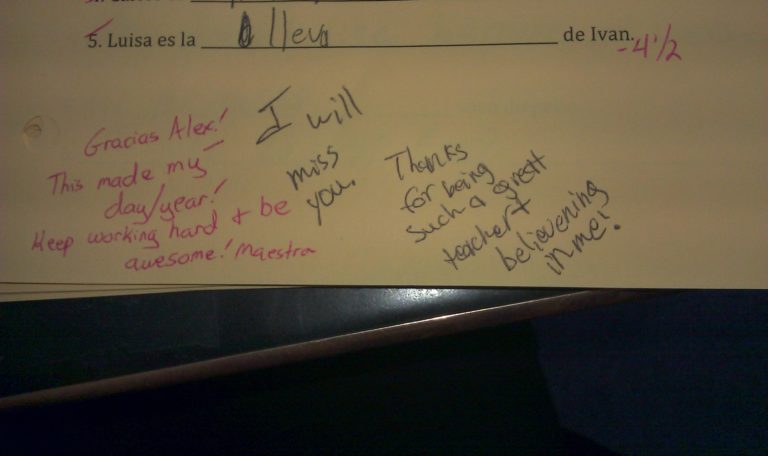Onward: Breaking the Cycle of Emotion
A note before I begin: I am not affiliated with this book. They aren’t paying me (Ha! I wish!) and none of these links are affiliate links. I just love this book and want others to know about it.
In June, I began reading Elena Aguilar’s “Onward: Cultivating Emotional Resilience in Educators”. Each chapter focuses on a month of the calendar year so I’m about half way through it as I write this post. I can already tell you that it’s a fantastic tool for teachers. One of the main take aways for me is this: You are in charge of your emotions and you can change your reactions.
When I began at my current school I was deep in the trenches of postpartum depression and anxiety with an infant at home and VERY little sleep. I was teaching block scheduling for the first time in a school climate and culture extremely different than my previous teaching experience. That was not my finest year. When I think back to things that happened in my classroom and how I reacted, I’m ashamed and embarrassed. I didn’t have much peace that year. In fact, I cried. Every day. I was overwhelmed and under supported.
The Cycle of Emotion & Changing Reactions
Onward taught me to pause the cycle of emotion and change how I react.

Here’s an example of what would happen that first year I was so overwhelmed:
- Prompting Event: Student is talking when they shouldn’t. Again.
- Interpretation: Student is disrespectful, doesn’t care about the class. I’m a bad teacher or they wouldn’t be talking, they’d be fully engaged.
- Physical Response: Breathing shortens, heart rate jumps, adrenaline kicks in, limbic system kicks into high gear. I stop thinking rationally.
- Urge to Act: I want to ignore it and act like it’ll go away on it’s own OR I know I should do something immediately but can’t think rationally enough to figure out what that action is.
- Action: Tell the student to stop talking. This may be the 4th or 5th or 7th time. I get angry. Maybe I raise my voice, maybe I kick the kid out of the class. Maybe I shame them by saying they should be listening so they do better on the next quiz.
- After Effects: I feel rotten because I didn’t treat my student well. I should have reacted better. This would have never happened if I was a “good” teacher. I’m a terrible teacher and am accomplishing nothing.
Nothing about that scenario makes me feel good. Onward spends a significant amount of time analyzing and breaking down the cycle of emotion and it’s worth it. Here’s what that same event looks like in my class today:
- Prompting Event: Student is talking when they shouldn’t. Again. (Note that nothing here has changed.)
- Interpretation: Student is disrespectful, doesn’t care about the class. I’m a bad teacher or they wouldn’t be talking, they’d be fully engaged.
- *PAUSE* What other interpretations could I have? Maybe they are helping their neighbor understand. They’re talking because they are in 9th grade and very social. They have a hard time knowing when is an appropriate time to talk. School isn’t a priority because they are nervous about an upcoming family thing. They are upset about something that happened last class and venting.
- Physical Response: Breathing shortens, adrenaline kicks in, limbic system kicks into high gear. I stop thinking rationally. (Again, nothing has changed from the first scenario)
- *PAUSE* Take a few deep breathes. Calm the limbic system. Slow my heart rate. Now I can think rationally.
- Urge to Act: I need to address this. I’m going to take a few more deep breathes and assess the situation to get more information. I learn they are talking about a chemistry test next block.
- Action: I calmly and discreetly, if possible, say in a calm, even, kind, confident voice, “Hey Students, I know you’re nervous about the test and are trying to prepare for that. That’s great you want to study. Right now isn’t the time. You need to focus on this activity and if you get done with it and have extra time, quiz each other on chemistry. Now, focus on this activity.”
- After Effects: I feel good about how I handled it. I supported my students and stood up for myself and my class. If we continue to have issues with them not focusing, I’ll say I asked them once to focus on Spanish now and take their chem notes so they aren’t distracted then give them back at the end of class. They may grumble but I will have treated them fairly, respectfully, and kindly while upholding my classroom expectations.
This interaction is very different. I treat my students with respect. I don’t jump to conclusions. I feel good about myself and how I handled it instead of guilty or shameful. Getting to that second scenario took practice. Is every day great? Of course not. There are still days I don’t breathe. There are still days I feel bad about how I handled a situation. That’s another cycle of emotion I can break. Instead of feeling like a terrible teacher, I can pause and assess the situation to give myself grace and reflect on how I could have handled the situation better and what I will do next time.
Take Aways
- Breathe. Breathe. Breathe. It’s amazing how often we don’t breathe. It’s that realization we were holding our breath without even realizing it. Taking a few deep breaths calms our minds, calms our bodies, allows us to think rationally and react better.
- Our History Affects Our Present Our history as a person affects who we are and how we teach. I grew up thinking I was never good enough. 20+ years of that belief affects my interpretation of events in my classroom. “I’m not a good teacher. I don’t know how to manage a class. My students are learning nothing because I suck.” These are all beliefs I held and feelings I felt my first year at my current school. I still have days I feel like this and believe these lies. Now though, I’m learning to show myself grace. I’m learning to change how I interpret events in my classroom. Most of the time, it’s not about me. How does your past affect you? How does it color your perception of the world?
- You Are in Control of Your Reactions. You Can Change Them. Just because I got flustered and frustrated before, doesn’t mean I have to now. I choose how to react to my emotions caused by the events around me. I choose peace and kindness.
If you’re feeling frustrated, worn out, and overwhelmed, check out Onward: Cultivating Emotional Resilience in Educators. Whether you’ve been teaching one year or twenty. There is something in it for you. Aguilar provides spot on examples and shares relatable stories. This book is designed for teachers. It is formatted in a way to make it easy to read and doesn’t feel like one more thing you have to squeeze in.
There is so much I appreciate about this book. I hope to share more of my experiences with it as the year progresses. Until then, be well!



